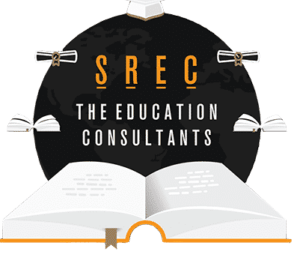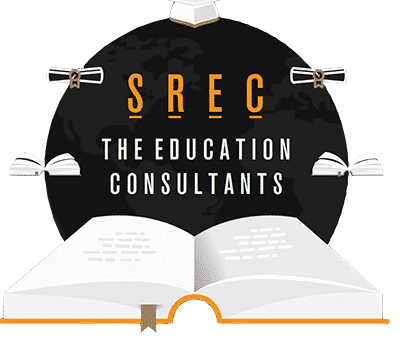
Canada is known to offer high quality education at an affordable tuition fee for degrees that are globally recognised, welcoming almost half a million international students. In comparison, an outstanding quality of life, immense post-study work and immigration possibilities – Canada stands out among Indian students as a common country to study.
Student life in Canada is very exciting and fascinating. There is no shortage of shopping malls, art galleries, theaters, cafeterias, and exhibition halls in the urban areas. Its cities and towns are rich in public gardens, beaches, parks, sports, and leisure facilities. One of the most important reasons why you should study in Canada is because of its welcoming and heartwarming environment. Canada is a peaceful country and is considered very safe for a living. Most of the universities keep campus security for the whole day. All universities in Canada have 24×7 campus security which includes security patrol cars and campus security offices to solve students’ grievances. Certain universities have also instigated the ‘Walk Safe’ program, in which the students can easily get access to public conveyance during late-night hours.
The Canadian Automobile Association (CAA) provides roadside assistance if your vehicle breaks down while driving in Canada. All Cabs in Canada have assistance information found in the backseat.
Canada has four very distinct seasons: Spring (March-May); Summer (June-August); Fall (September-October); and Winter (November-February).
While temperatures in the far north climb above 0°C only for a few months of the year, the country’s southern border has warm springs, hot summers, and pleasant autumns prevailing for at least seven months before winter sets in.
The placement figures and career opportunities for graduates from Canadian universities are remarkably high as a result Canadian schools are ranked amongst the top ten institutions in the world. This results in maximum of students filling submissions to study in Canada every year. The country has public expenditure on post-secondary education of more than 30 billion dollars every year. Depending on the nature of the institution and the duration of the course, tertiary level education is available in both government and private institutions offering degrees, diplomas, certificates, and attestations. Students studying in Canada have great chances of becoming the most successful experts and are wanted by some of the top recruiters of the world.
Following are the degrees generally awarded by Canadian higher education institutes.
- Certificate Level (one year)
- Diploma level (two years)
- Advanced Diploma (three years)
- Fast track Diplomas or Advanced Diploma (1 or 2 years)
- Post-graduate Diplomas/Certificates (one or two years)
- Master’s Degree (one to two years)
- M.Phil. Degree (two years)
- Doctorate or Ph.D. (four to seven years)
The general criteria for application are mentioned below:
English Requirements
- The minimum TOEFL score required by most universities is 80-84 (internet-based test) for PG courses
- Most universities and colleges accept equivalent IELTS and PTE Academic scores
Undergraduate study in Canada
- Universities in Quebec require a minimum of 13 years of secondary school education, i.e. an additional year of formal education after the 12th standard or intermediate degree. But, if your academic credentials are very impressive, some universities may consider your application even with 12 years of education
- Minimum aggregate marks of 70% in 12th grade for bachelor’s degrees, and above 50% for diplomas and advanced diplomas
- Mathematics in-class XII (a prerequisite for some sciences, technology, and business courses)
- Minimum required IELTS/PTE Academic scores with an overall score of 6.0 bands or equivalent PTE scores
Masters in Canada
- Most universities require a qualification equivalent to the Canadian bachelor’s degree, which requires 16 years of formal education. It would mean another year of education after an Indian bachelor’s or a four-year bachelor’s degree course like B.E., B.Tech. or other such courses.
- Minimum required IELTS / PTE Academic scores with a minimum score of 6.5 bands as an overall score for PG Diploma and 7.0 bands for a master’s degree. Some universities accept equivalent PTE scores too.
- Relevant work experience (some universities require this for MBA and Master’s Degree in IT)
Doctorate in Canada:
- Masters Degree in the particular subject you wish to pursue a doctorate program
ABOUT CANADA
Canada, located in North America, is the world’s second-largest country by
land area, renowned for its stunning natural landscapes, diverse culture, high standard of living, and progressive values. Here’s an overview of key aspects of Canada:Canada’s major cities include Toronto, Vancouver, Montreal, Calgary, Ottawa (the capital), and Edmonton. These cities are vibrant cultural hubs with diverse populations, offering a wide range of attractions, entertainment, and amenities.Canada offers high-quality education at all levels, from primary and secondary schools to post-secondary institutions such as colleges and universities. The country’s education system is known for its academic excellence, research output, and emphasis on innovation.Canada boasts breathtaking natural beauty,
including iconic landmarks such as the Rocky Mountains, Niagara Falls, Banff
National Park, Jasper National Park, and the Canadian Rockies. Outdoor activities such as hiking, skiing, camping, and wildlife watching are popular across the country.
QUICK FACTS
- CAPITAL: OTTAWA
- RELIGION: CHRISTIANITY
- POPULATION: 37.14 MILLION
- CURRENCY: CANADIAN DOLLAR
- LANGUAGE: ENGLISH & FRENCH
- DIALING CODE: +1
- SUMMER TEMP: 30°C
- WINTER TEMP: -15°C
- Business & Finance
- Maths & Science
- Computer
- Hospitality
- Engineering
- Business & Finance
- Maths & Science
- Computer
- Hospitality
- Engineering
Top Universities in Canada
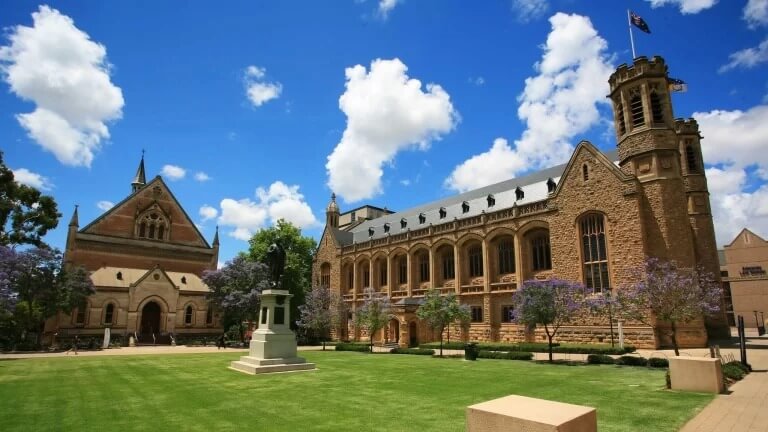
University of Toronto
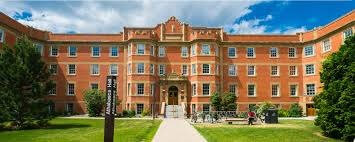
University of Alberta

The University of British Columbia
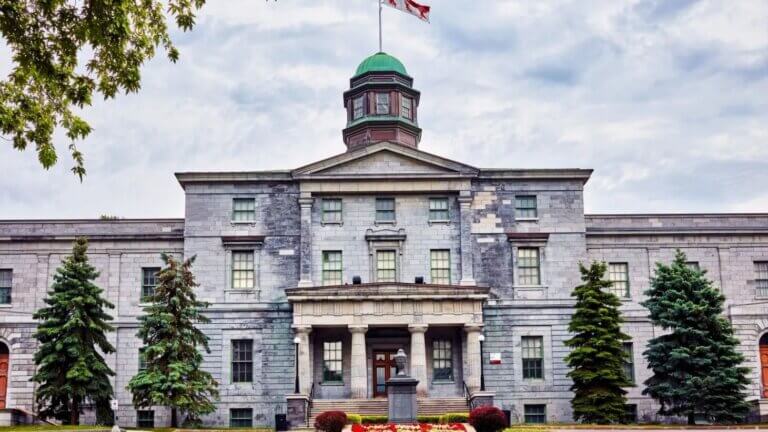
McGill University
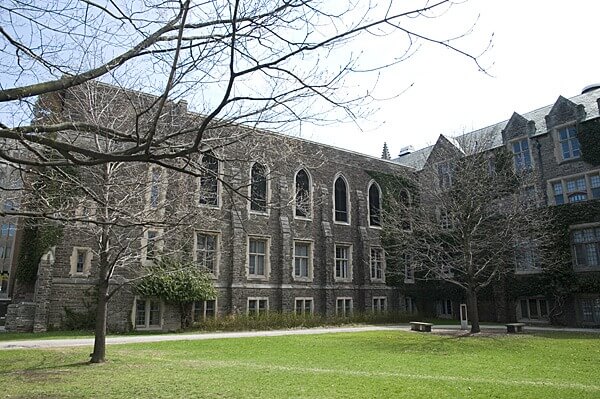
McMaster University

University of Montreal

University of Calgary
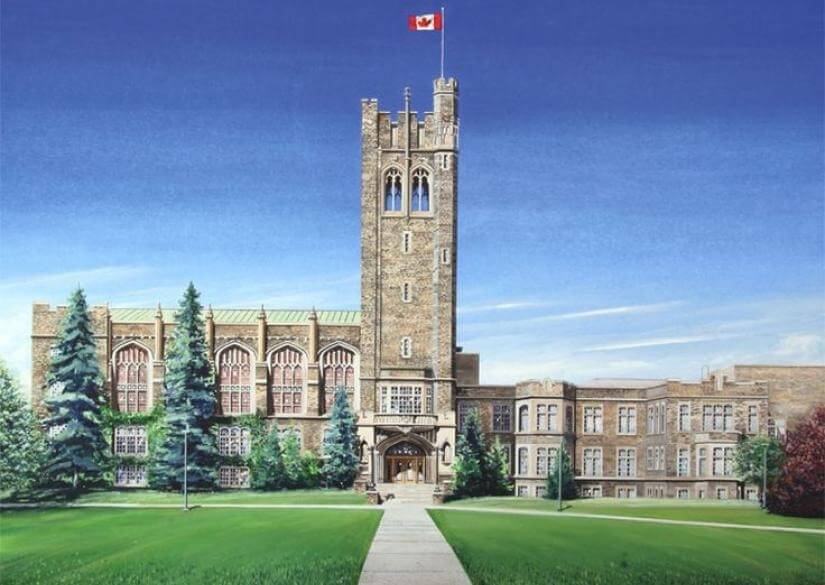
Western University
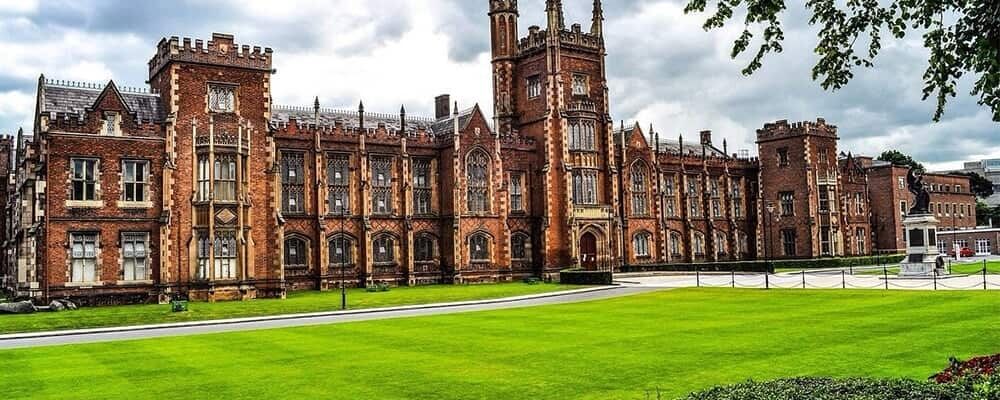
Queen's University

Admission Procedure
The admission process can be broadly divided into the following steps:
- The desired course & university needs to be decided on the requisite English proficiency tests like IELTS/ PTE/ TOEFL.
- Entry Requirements are to be followed
- Certificates of Class 10 & 12, Graduation (if Applicable),PG as Well as grades of English proficiency test are to be kept ready
- Applications to be sent to Colleges/Universities
- After sending the applications , candidates can expect to receive either a conditional offer/ unconditional offer/ rejection.
- The Unconditional Offer letter needs to be accepted by Payment of preliminary deposits as required by the particular university/ institution
WHY STUDY IN CANADA ?
Studying in Canada offers numerous advantages, making it an attractive destination for international students. Here are some compelling reasons why you might consider studying in Canada:
High-Quality Education: Canada is known for its world-class education system, with
top-ranked universities, colleges, and schools offering high-quality academic
programs and qualifications recognized globally. Canadian institutions are known for
their academic excellence, research output, and innovative teaching methods.
Diverse Range of Programs: Canada offers a wide variety of academic programs and
courses across various disciplines, catering to different interests, career goals, and
academic levels. Whether you’re interested in arts, sciences, engineering, business,
or healthcare, you’re likely to find a suitable program in Canada.
Work Opportunities: International students in Canada are allowed to work part-time
(up to 20 hours per week) during the academic year and full-time during scheduled
breaks. This provides valuable opportunities to gain work experience, supplement
income, and develop employability skills while studying.
Post-Graduation Work Permit (PGWP): Upon graduation, international students in
Canada may be eligible to apply for a Post-Graduation Work Permit (PGWP), allowing
them to gain professional work experience in Canada for up to three years. The
PGWP is an excellent pathway to further employment opportunities or permanent
residency in Canada.
Affordable Education: While tuition fees in Canada may vary depending on the
institution and program, they are generally more affordable compared to other top
study destinations such as the United States and the United Kingdom. Additionally,
scholarships, grants, and financial aid options are available to help offset the cost of
education.
Quality of Life: Canada offers a high standard of living with a good quality of life. Its
cities are known for their clean and safe environment, excellent healthcare system,
multicultural amenities, and recreational opportunities. Canada’s natural beauty,
including stunning landscapes and outdoor activities, adds to its appeal as a study
destination.
Immigration Opportunities: Canada’s immigration policies are favourable to
international students, with various pathways to permanent residency available for
graduates. Studying in Canada can be a stepping stone to building a successful
career and life in the count
TOP COURSES IN CANADA
Canada offers a wide range of courses across various fields of study, but some of
the top and most sought-after courses include:
1. Computer Science and Information Technology: With the increasing demand
for technology professionals, computer science and IT-related courses are
highly popular. Specializations include artificial intelligence, cybersecurity,
software engineering, and data science.
2. Engineering: Canada is known for its strong engineering programs, covering
disciplines such as mechanical engineering, electrical engineering, civil
engineering, and chemical engineering.
3. Business and Management: Business administration, finance, accounting,
and management courses are popular choices for students interested in
pursuing careers in business and commerce.
4. Health Sciences: Health-related courses, including medicine, nursing,
pharmacy, and public health, are in high demand due to Canada’s aging
population and the need for healthcare professionals.
5. Natural Sciences: Courses in biology, chemistry, physics, and environmental
science are popular for students interested in scientific research and
exploration.
6. Social Sciences and Humanities: Psychology, sociology, political science,
and international relations are among the popular courses in the social
sciences and humanities fields.
7. Hospitality and Tourism: With Canada’s vibrant tourism industry, courses in
hospitality management, tourism, and event management attract many
students.
8. Creative Arts and Design: Courses in fine arts, graphic design, animation,
and film production cater to students with a passion for creativity and
expression.
9. Education: Courses in education and teacher training are popular among
students interested in pursuing careers in teaching and educational
leadership.
10.Environmental Studies: Given Canada’s focus on environmental
sustainability, courses in environmental science, sustainability studies, and
renewable energy are increasingly popular.
INTAKES IN CANADA
In Canada, universities typically have two main intakes for undergraduate and
graduate programs:
1. Fall Intake (September): This is the primary intake and the most popular one.
Most programs start in September, and students need to apply well in
advance, usually by early winter or spring of the same year.
2. Winter Intake (January): Some universities offer a smaller intake in January,
particularly for certain programs or for students who couldn’t start in
September. However, not all programs may be available for this intake, and
options might be more limited compared to the fall intake.
In addition to these two main intakes, some universities might offer additional
intakes or start dates for specific programs or for international students. It’s
essential for prospective students to check the specific intake dates and deadlines
for the universities and programs they’re interested in, as they can vary.
INTERNATIONAL EXAMS FOR CANADA
In Canada, several international exams are commonly taken by students for various
purposes, including academic admissions, language proficiency certification, and
standardized testing. Some of the key international exams in Canada include:
1. IELTS (International English Language Testing System): IELTS is widely
accepted by universities, colleges, and immigration authorities in Canada as
proof of English language proficiency for non-native English speakers.
2. TOEFL (Test of English as a Foreign Language): Similar to IELTS, TOEFL
measures English language proficiency and is accepted by many Canadian
institutions for admission purposes.
3. SAT (Scholastic Assessment Test): The SAT is commonly used for
undergraduate admissions in the United States but is also accepted by some
Canadian universities for international students.
4. ACT (American College Testing): Like the SAT, the ACT is primarily used for
undergraduate admissions in the United States but is accepted by some
Canadian universities as well.
5. GRE (Graduate Record Examination): The GRE is required for admission to
many graduate programs, particularly in fields such as engineering, natural
sciences, and social sciences.
6. GMAT (Graduate Management Admission Test): The GMAT is commonly
required for admission to MBA and other graduate business programs.
7. MCAT (Medical College Admission Test): The MCAT is required for
admission to medical schools in Canada and the United States.
8. LSAT (Law School Admission Test): The LSAT is required for admission to
law schools in Canada and the United States.
VISA PROCESS
VISA PROCESS
The visa process for Canada varies depending on the purpose of your visit, such as
tourism, study, work, or immigration. Here’s a general overview of the visa process
for each category:
1. Study Permit:
● Obtain an acceptance letter from a Designated Learning Institution
(DLI) in Canada.
● Gather required documents, including proof of identity, financial
support, and a letter of explanation.
● Complete the online application form or submit a paper application (if
applicable).
● Pay the application fee.
● Undergo a medical examination (if required).
● Attend an interview (if required).
● Wait for a decision on your study permit application.
Throughout the visa process, it’s essential to follow the instructions provided by the
Canadian government and ensure that all required documents are submitted
accurately and on time. It’s also recommended to apply well in advance of your
intended travel date to allow for processing times.
Requirements & Procedures
List of Documents Required
- Passport
- Academic Transcripts
- Statement of Purpose (SOP)
- Proof of English Test taken – IELTS/TOEFL/PTE
- Work Experience Certificate
- Letter of Recommendation
- Curriculum vitae
Visa Guidance
- Arrangement of Funds from Acceptable Resources, such as savings account, PPF, Fixed deposits, or Education Loan.
- Bank Statements are to be provided
- Confirmation of COE
- Medical Examination to be Undergone
- SOP to be Written for visa and Preparation to be taken for visa Interview
- Online Visa form To be filled
- fees to be filled and application Form to be Submitted.
What is English Proficiency Test?
Students can appear in any of the following tests.
- International English Language Testing System (IELTS)
- Test of English as a Foreign Language (TOEFL)
- Person Test of English (PTE) Academic
Check out the FAQ’s to know the Answers to the Frequently Asked Questions
Canada FAQ
Studying in Canada can be relatively cheaper as Canada offers low tuition rates for international students as compared to the U.S., the U.K., and Australia.
- You can opt for on-campus housing ranging from shared condominiums to dormitory-style housing or choose to live off-campus.
- The cost for on-campus housing may or may not include a meal plan and or other utilities such as phone and internet connection.
- Accommodation prices may be lower off-campus but you will have to bear the extra cost of furnishings, water, electricity and/or other miscellaneous expenses.
Canada has four very distinct seasons: Spring (March-May); Summer (June-August); Fall (September-October); and Winter (November-February).
While temperatures in the far north climb above 0°C only for a few months of the year, the country’s southern border has warm springs, hot summers and pleasant autumns prevailing for at least seven months before winter sets in.
International students can work while studying in Canada if they have a valid study permit and a Social Insurance Number (SIN). The students can work part-time for 20 hours a week during term time and 40 hours i.e. full time during vacations. Besides many of the institutions in Canada offer paid internships as part of the course wherein the students get the opportunity to work full time in the industry relating to their area of study.
Some programs in Canada do include work experience as part of their curriculum.
You may apply for a co-op or intern work permit if
- You have a valid study permit or
- Working is a significant part of your study program in Canada or
- A letter from your school confirms that all students in your program must complete work placements to get their degree or
- Your co-op or internship is 50 % or less of the total program of study.
If you graduate from a Designated Learning Institution, then you can gain valuable Canadian work experience under the Post-Graduation Work Permit Program (PGWPP). Normally a work permit visa is granted for one year on a study of one year. For a study of at least 2 or more years, the student can get a post-study work visa of up to 3 more years.
START YOUR JOURNEY TODAY!
Fill out the form below to get in touch with our expert advisors who will be able to assist you further.
